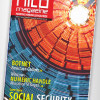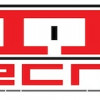RIAA Wants to Hack Your PC
WASHINGTON -- Look out, music pirates: The recording industry wants the right to hack into your computer and delete your stolen MP3s.
It's no joke. Lobbyists for the Recording Industry Association of America (RIAA) tried to glue this hacking-authorization amendment onto a mammoth anti-terrorism bill that Congress approved last week.
A copy of an RIAA-drafted amendment obtained by Wired News would immunize all copyright holders -- including the movie and e-book industry -- for any data losses caused by their hacking efforts or other computer intrusions "that are reasonably intended to impede or prevent" electronic piracy.
In an interview Friday, RIAA lobbyist Mitch Glazier said that his
association has abandoned plans to insert that amendment into anti-terrorism
bills -- and instead is supporting a revised amendment that takes a more modest
approach.
"It will not be some special exception for copyright owners," Glazier said. "It
will be a general fix to bring back current law." Glazier is the RIAA's senior
vice president of government relations and a former House aide.
The RIAA's interest in the USA Act, an
anti-terrorism bill that the Senate and the House approved last week, grew out
of an obscure part of it called section 815. Called the "Deterrence and
Prevention of Cyberterrorism" section, it says that anyone who breaks into
computers and causes damage "aggregating at least $5,000 in value" in a one-year
period would be committing a crime.
If the current version of the USA Act becomes law, the RIAA believes, it could
outlaw attempts by copyright holders to break into and disable pirate FTP or websites or peer-to-peer networks. Because the bill covers aggregate damage, it
could bar anti-piracy efforts that cause little harm to individual users, but
meet the $5,000 threshold when combined.
"We might try and block somebody," Glazier said. "If we know someone is
operating a server, a pirated music facility, we could try to take measures to
try and prevent them from uploading or transmitting pirated documents."
The RIAA believes that this kind of technological "self-help" against online
pirates, if done carefully, is legal under current federal law.
But the RIAA is worried about the USA Act banning that practice -- and neither
the Senate nor the House versions of that bill include the RIAA's suggested
changes.
Glazier said that the RIAA was no longer lobbying for the language provided to
Wired News -- "that's completely out" -- but instead wanted to ensure that
current law remains the same. But Glazier said he could not provide a copy of
the revised amendment he hopes to include.
Legal scholars say that the original amendment the RIAA had been shopping around
to members of Congress raises privacy and security concerns.
"It could lead to some really bad outcomes, like a program purposefully intended
to delete MP3s that misfunctions and erases everything on a disk -- ooops," says
Marc Rotenberg, director of the Electronic
Privacy Information Center. "Think a repo man smashing windows and knocking
down doors to pull out the 27-inch color TV when you've missed a couple of
payments."
Peter Swire, a former top
privacy official under President Clinton and now a professor at Ohio State
University, says he hopes there would be public debate on any such proposal.






































































